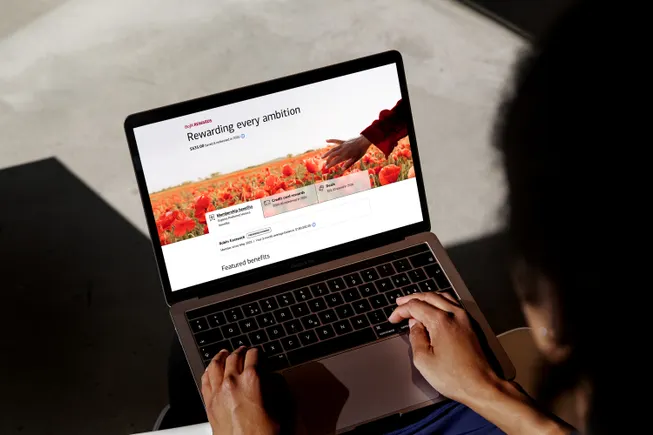Donald Trump’s tenure as the U.S. president was marked by a strong inclination toward protectionism. From imposing tariffs on foreign goods to renegotiating trade deals, his policies aimed to shield American businesses and jobs from global competition. Now, as Trump seeks to return to the political stage, questions arise about the potential impact of his protectionist stance on the global economy—and more specifically, on international banking roles.
For professionals working in the banking sector, particularly those with a focus on international finance and cross-border transactions, Trump’s protectionist policies could significantly reshape the landscape. While these policies may promote domestic growth and reduce reliance on foreign imports, they could also limit opportunities for global banking professionals who depend on international markets to thrive. Let’s explore how Trump’s protectionist approach might influence international banking careers.
1. The Impact of Trade Barriers on Global Banking Operations
Trump’s protectionist policies often come with an emphasis on imposing tariffs and creating trade barriers with countries like China and the European Union. These actions, although aimed at revitalizing domestic manufacturing and addressing trade imbalances, can slow down international trade. For global banking professionals who manage cross-border transactions, this slowdown can limit the volume of trade financing and foreign exchange operations.
As banks deal with fewer international transactions, roles focused on global trade financing, foreign exchange, and international risk management may see reduced demand. For bankers who rely on the movement of goods and services across borders to fuel their business, these barriers can create a more challenging work environment.
2. Reduced Foreign Direct Investment (FDI) and Its Effect on Global Banking
One of the core drivers of international banking growth is Foreign Direct Investment (FDI). Global banks rely on investment flows between countries to facilitate lending, mergers, acquisitions, and other financial services. Protectionist policies often discourage international investments by making it more difficult or expensive for foreign companies to enter the U.S. market. If foreign companies perceive the U.S. as an unattractive or risky investment destination, the inflow of capital into the country could slow down.
As a result, banking professionals involved in facilitating cross-border investments or working in international capital markets may see fewer opportunities. Less investment activity can lead to reduced demand for roles such as investment banking analysts, corporate finance specialists, and mergers and acquisitions advisors who rely on global investment flows.
3. Shifting Focus of Multinational Banks
Multinational banks operating in the U.S. may find themselves navigating increased challenges in light of protectionist policies. With the U.S. becoming more insular, banks that have relied on the global movement of capital, as well as international transactions, may consider shifting their focus to other emerging markets or reevaluating their global strategies. For international banking professionals, this could mean that opportunities at multinational banks may become more focused on regional rather than global operations.
For professionals working in international branches or those specializing in cross-border transactions, there may be fewer roles available in the U.S. and more opportunities in regions where economic growth is more robust. Banks might prioritize locations that are less affected by protectionist measures, such as Asia or Africa, leading to the need for a new set of expertise in emerging markets.
4. Increased Domestic Focus and the Rise of Local Banking Roles
Protectionist policies are likely to make the U.S. more inward-looking, with an emphasis on domestic industries, jobs, and businesses. As a result, there may be an increased demand for banking professionals who specialize in domestic financial services, including consumer banking, small business lending, and mortgage financing.
While international roles might decline in demand due to fewer global transactions, professionals who focus on U.S.-centric financial services might find growth opportunities. This could lead to a shift in the type of banking roles in demand. Positions in compliance, regulation, and risk management, particularly for businesses operating within the U.S., may become more sought after.
5. The Potential for Job Shifting in Global Banking Markets
Trump’s protectionist agenda could cause significant disruptions to the financial services market. Banking professionals who are used to navigating international markets may find themselves needing to adapt to a new economic landscape, one in which global integration is less emphasized.
This could lead to a shift in banking careers, where professionals who specialize in international banking might need to pivot to more localized roles or diversify their skillsets. Understanding emerging markets and how to manage trade and investments in less-regulated regions may become more valuable. For those willing to adapt, new opportunities may arise in non-U.S. markets that embrace more open trade policies or are less influenced by protectionism.
6. Banking Technology and Digitalization: A Potential Boon for International Roles
While Trump’s protectionist policies may limit certain global banking roles, the growing trend of digital banking and technological innovation could offer a silver lining. The push for digitization in the banking sector, particularly in cross-border payments and international transfers, could reduce the barriers caused by trade tariffs or protectionist regulations.
In particular, the development of digital currencies, blockchain, and fintech innovations may provide a platform for international banking to thrive in a more fragmented global economy. Professionals with skills in financial technology, blockchain, and digital banking may find themselves in higher demand as global banking systems become more decentralized.
7. How to Position Yourself for Success in a Changing Global Banking Landscape
For professionals in international banking, staying ahead of Trump’s protectionist policies and understanding how these shifts impact the global economy is crucial for career success. You’ll need to remain flexible and prepared to adapt to new opportunities that may emerge as a result of these policies. Developing expertise in emerging markets, digital banking, and fintech could allow you to pivot and grow in the banking industry, even in the face of protectionist policies.
For those seeking new roles, platforms like All Banking Jobs can help you explore opportunities in both domestic and international markets. Whether you’re looking for positions focused on cross-border transactions, global finance, or fintech innovation, All Banking Jobs connects professionals with the right opportunities to stay competitive in a rapidly changing global economy.
Conclusion
Trump’s protectionist policies have the potential to significantly reshape the landscape of international banking, limiting some roles while creating new ones in different areas. As banks adapt to new trade barriers and focus more on domestic industries, professionals in global banking may need to diversify their skills and consider opportunities in emerging markets or digital banking. For those who remain agile and open to learning, the right role may still be within reach, especially with the support of platforms like All Banking Jobs, which can help connect professionals to new opportunities in an evolving financial world.






